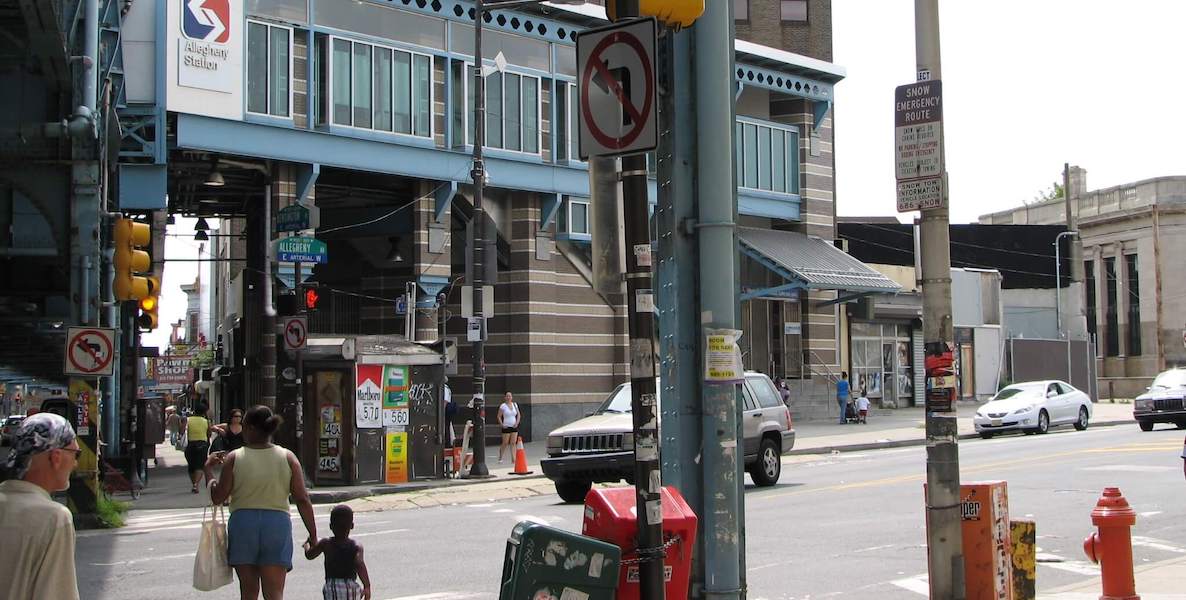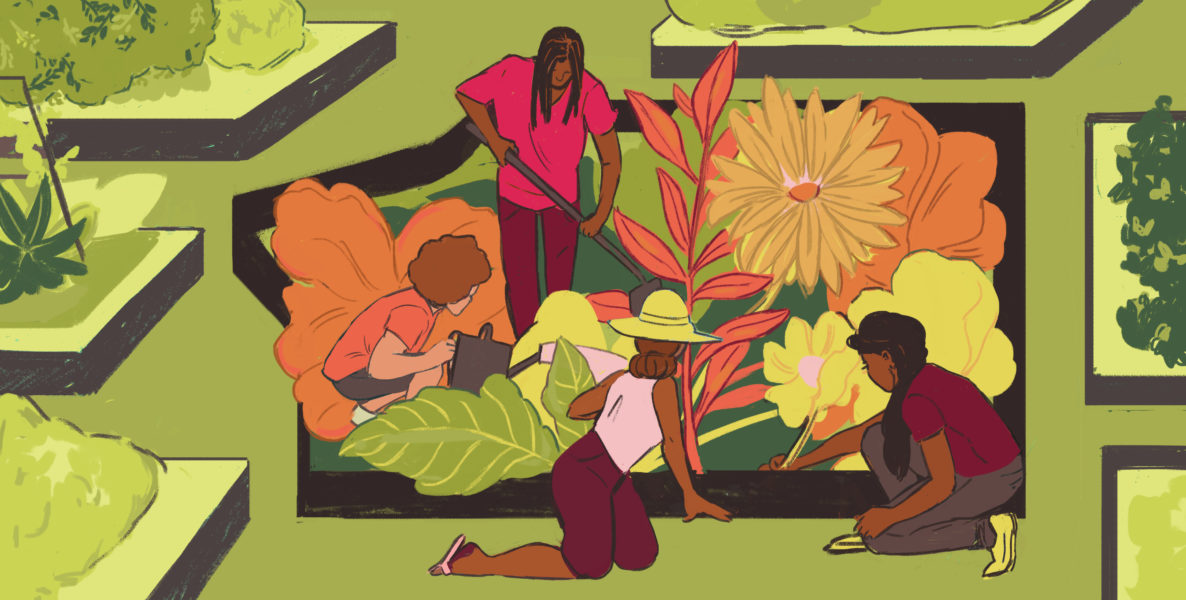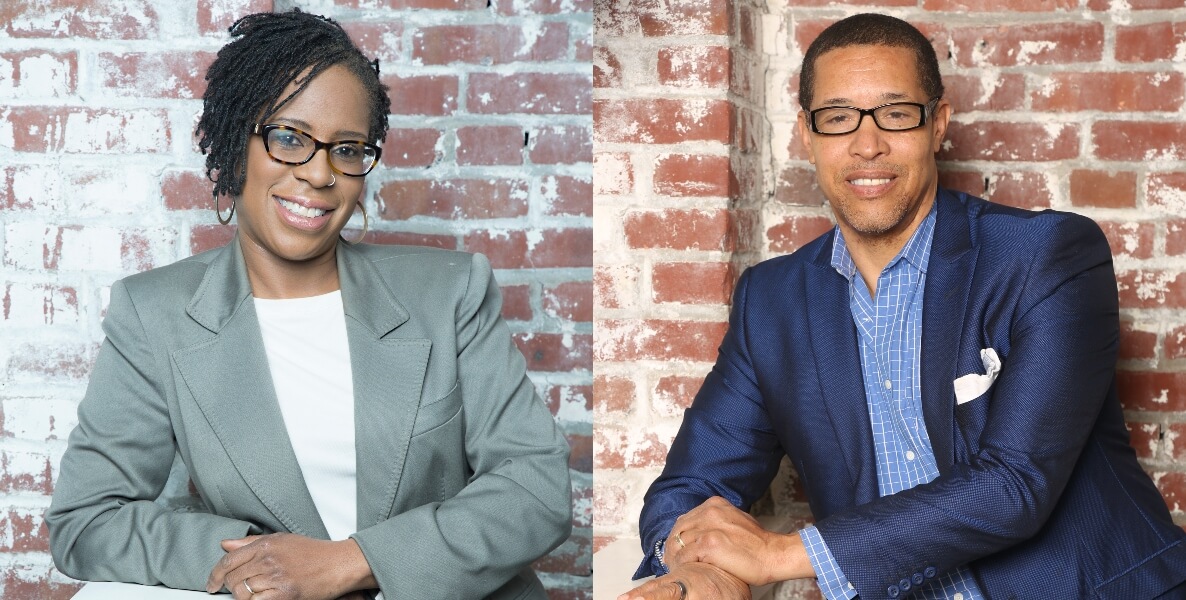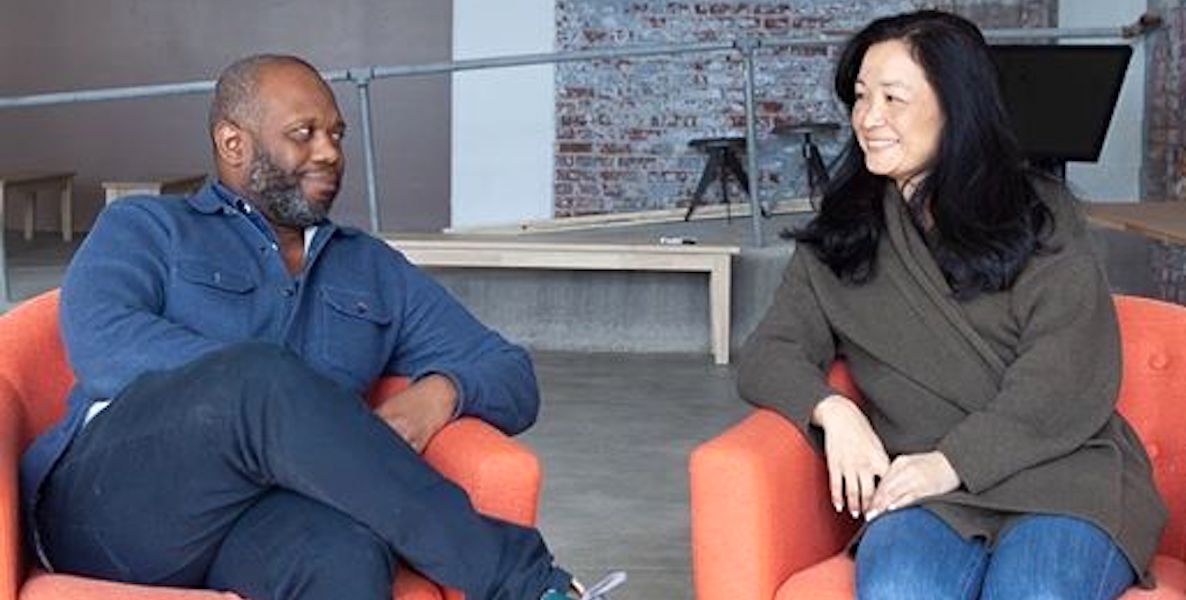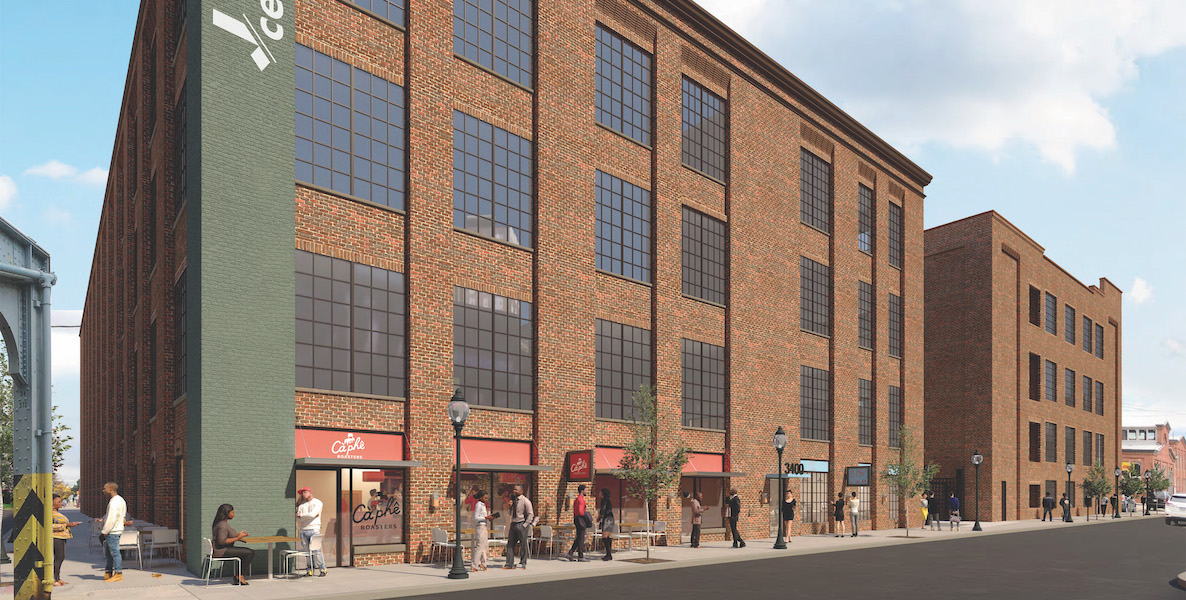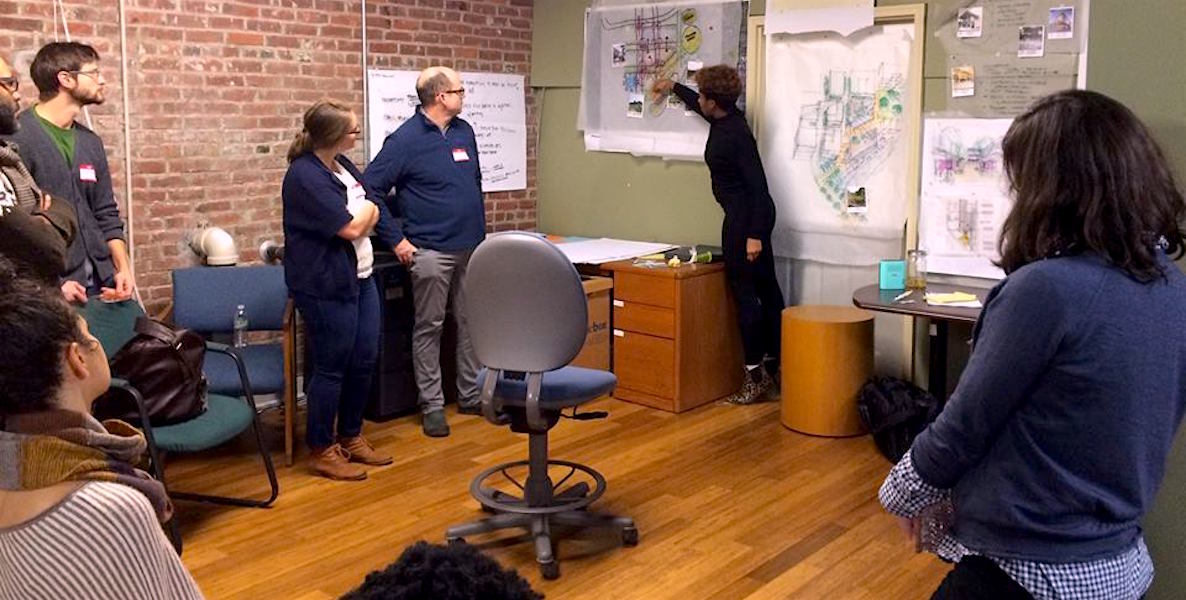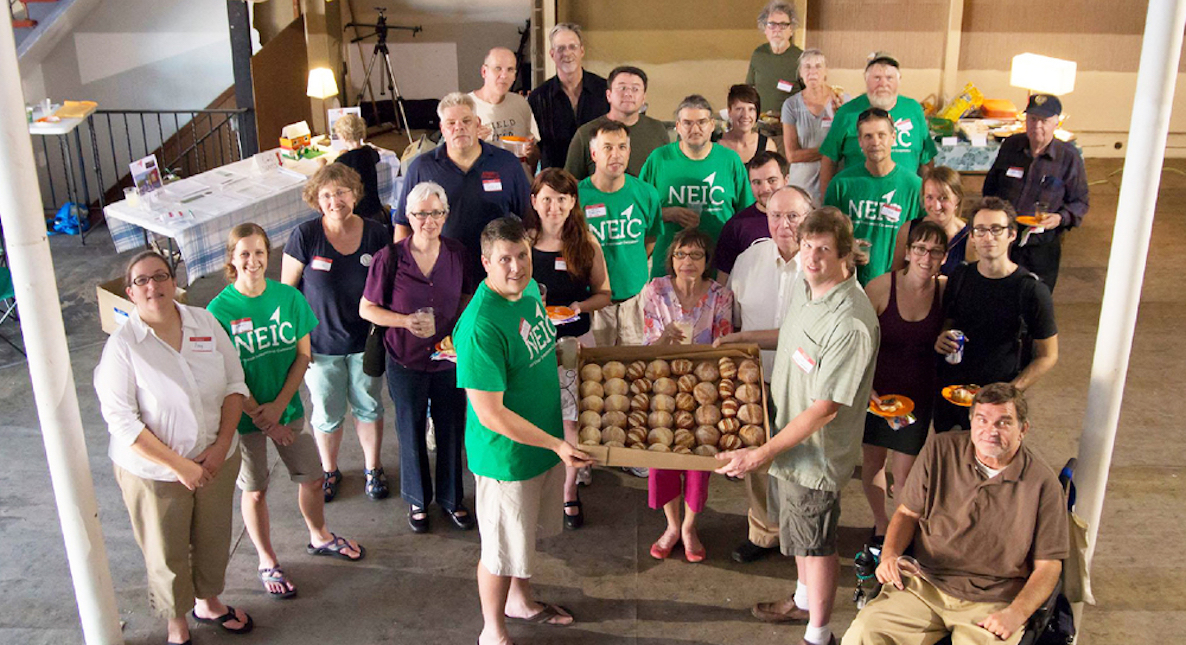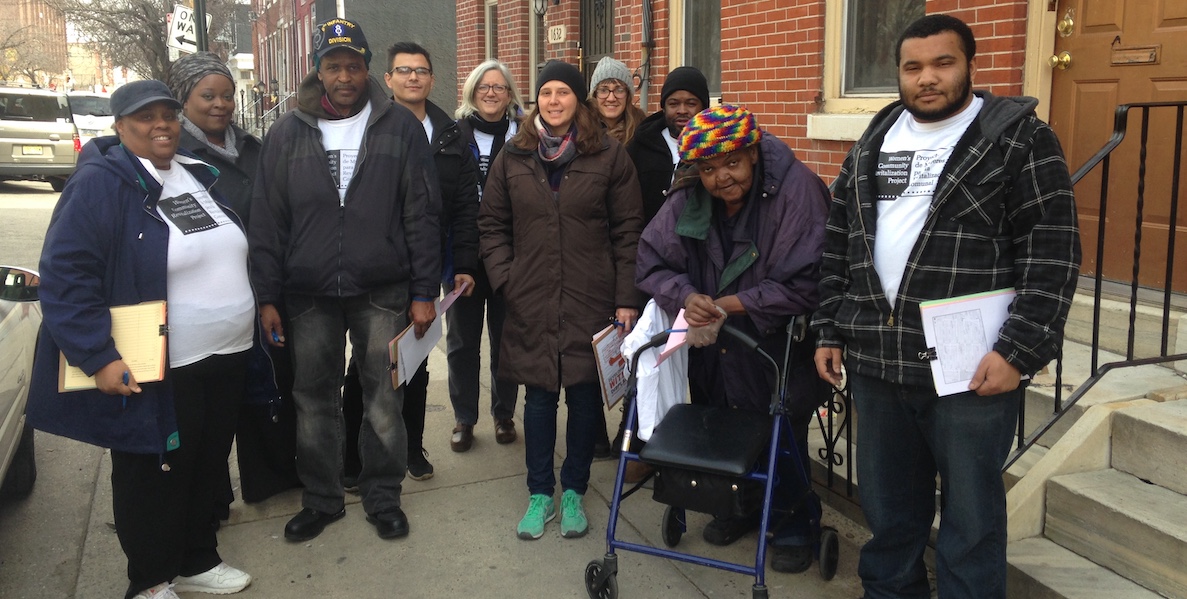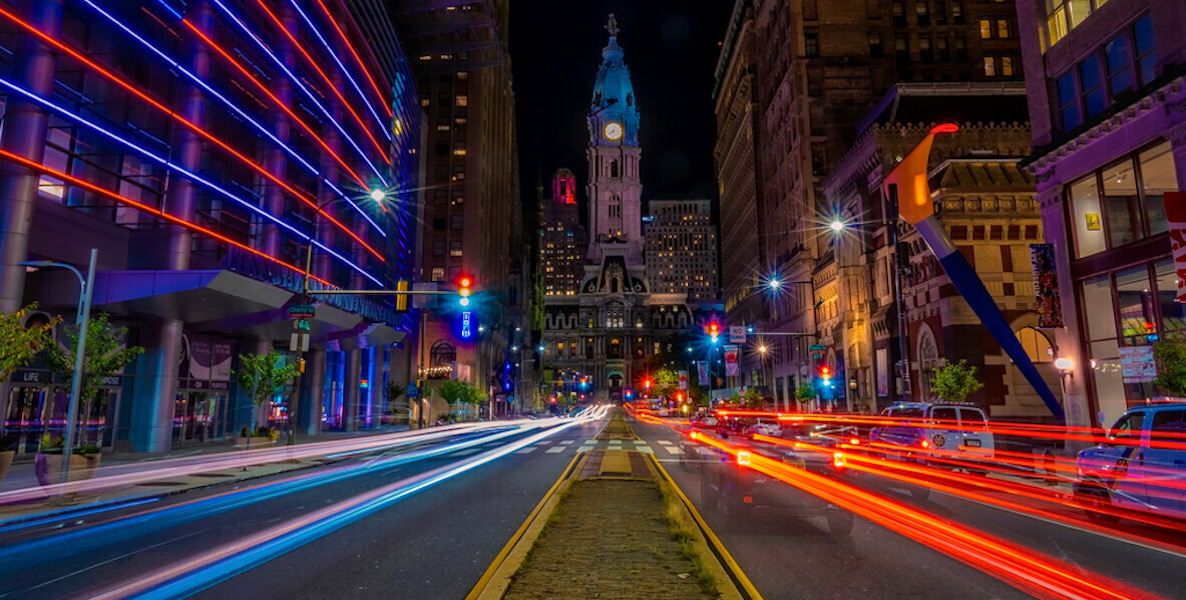Growing up in South Philly in the ’60s and ’70s, Robert Del Femine lived the quintessential Philly kid life.
“It was alive, crazy, every generalization was true,” he says. A rabid Philly sports and music fan who was always playing with his buddies on the street, “DEL,” as he’s known by all, was also a bit of an outlier among his friends.
“In the middle of the summer, as a 12- and 13-year-old kid, I would have to go inside a couple days a week so that I could learn vocabulary words and type on a manual typewriter, because my mom said, When you go to college you’re going to want to know how to type,” he says.
And, as the story (always) goes, mom was right. That focus on learning? It’s what opened doors to Masterman and then Central High School. And it was those trips from South Philly all the way up to Central on West Olney, starting in 1973, that would crack open young DEL’s world, expand his perspective beyond the neighborhood he’ll always cherish.
MORE ON THOUGHTFUL DEVELOPMENT IN PHILLY
-
- Mosaic Development Partners works to bring people of color into the real estate market
- D3 Developers used to build multi-million dollar condos. Now they build community.
- Developer Ryan Spak talks inclusive development in Philadelphia
- Aequo levels the playing field for female and minority developers
- A collab of local organizations is working to boost business in Kensington
It was a time of unrest in the city, the call for women’s rights and gay rights and the fight for racial justice and the pervasiveness of drugs—themes that fueled the music of the time, soul, rock, disco, the early emergence of rap. And DEL loved the energy of it all.
He’d delve into the history of North Broad—how, with the removal of the railroad tracks in the 1860s, it became a hub of development and a home to the city’s nouveau riche. The Masonic Temple was built, then PAFA, and the Metropolitan Opera House in 1908.
Even as a teenager, DEL had a sense that North Broad could be more. Could be awesome. “I remember thinking, These buildings are so unbelievable, why can’t somebody fix them up, why can’t they be better? Why is it so bad?” The answer was layered, and in many ways started with the building of the Broad Street subway in 1924, which created dust and noise and lent an unappealing image to the neighborhood.
Still, DEL started to see North Broad Street as “a kind of passageway through time,” socioeconomic strata, architectural genres. Yes, you had to be careful—there were times when someone would put a gun to the subway window, all the South Philly kids screaming their heads off—but DEL just thought of North Broad as “adventurous.” And he loved that by the time he landed at Central every morning, “the milkshake would be flavored from everywhere in the city.”
“I love different people. And I’ve always liked to be the connector,” he says.
So today, it’s fitting that, at age 61, after retiring from a successful 29-year career in marketing at Johnson & Johnson, DEL is now among a dedicated cast of die-hard Philadelphians determined to nurture North Broad Street to its fullest potential. Not to gentrify it. Not to make it the “next hot neighborhood.” But to revitalize it, restore it, nudge it to be a hub of community and culture for everyone.
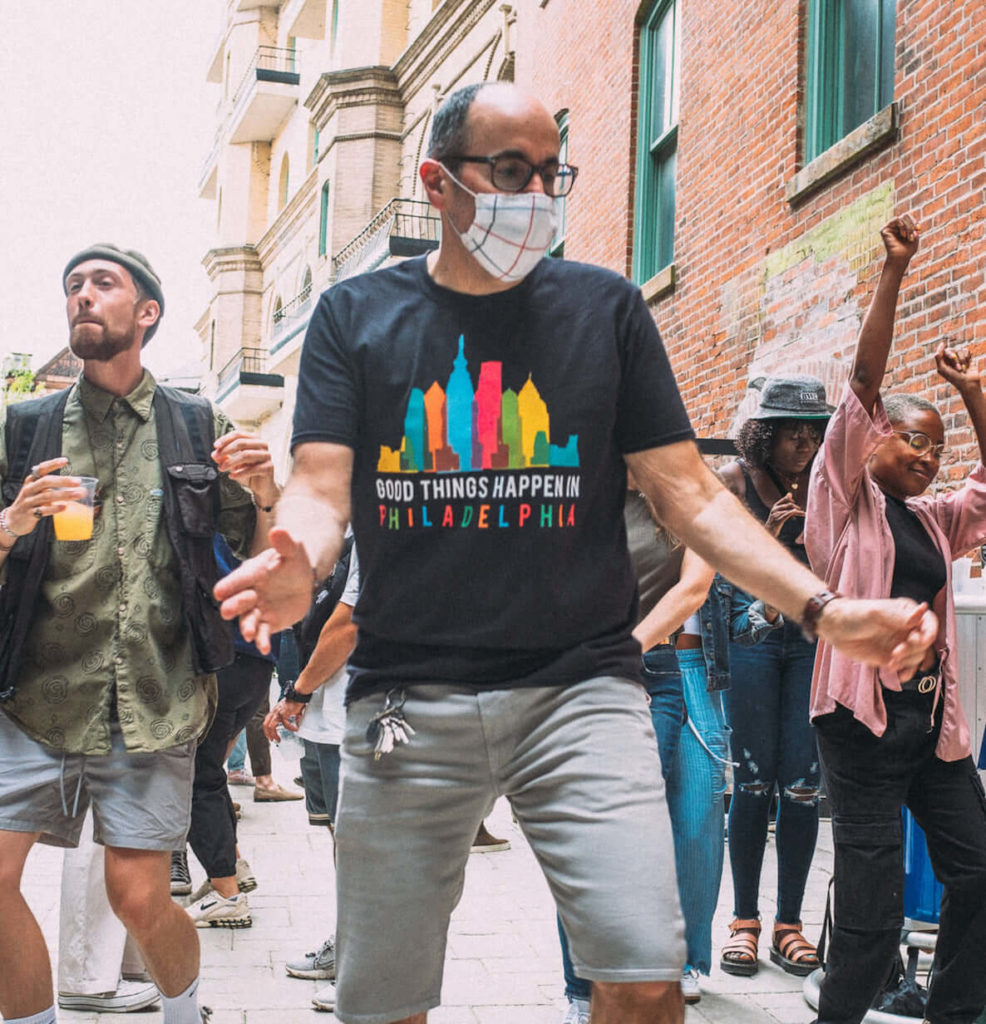
In DEL’s case, he’s doing it through his partnership with Chef Natalie Maronski, overseeing four venues—coffee shop, bar, restaurant, and community space—at the restored Divine Lorraine through the duo’s new venture, Underground Concepts. DEL wants it to be the most welcoming place in the city, somewhere people who are queerer and darker and younger (in body or just spirit) than him come together and experience joy and connection. He envisions welcoming students from Temple University and Central to use the space for music; wants to work with People For People, the entrepreneurship-focused charter school across the street; host pop-ups and dance parties and whatever the community dreams up.
His commitment to marginalized groups is not marketing shtick: In 1989, his older brother died of AIDS. When DEL says he wants to create the kind of safe space where everyone truly feels welcome, he gets choked up; for him, doing North Broad right is personal.
A team effort
Of course, DEL is not the only character involved in North Broad’s turnaround. There are stakeholders from all arenas involved. Take DEL’s good friend, Eric Blumenfeld, and his company, EB Realty Management Corp, which redeveloped the Divine Lorraine and The Met, to name a few.
“When Bob Dylan played on opening night on December 3, 2018, I watched the crowds walk down North Broad, trying to understand what it’s all about. And these are people that had likely never been on North Broad. It was amazing to see,” says Christopher Cordaro.
“When Bob Dylan played on opening night on December 3, 2018, I watched the crowds leave the show, and I literally had tears in my eyes,” says Christopher Cordaro, vice president to Blumenfeld. “I was watching people walk down North Broad, trying to find a place to eat, trying to find a place to drink, trying to connect with friends, trying to understand what it’s all about. And these are people that had likely never been on North Broad. It was amazing to see.”
To be sure, North Broad still has its problems—there’s admittedly more crime in the neighborhood than in other “destination neighborhoods” like Center City or Avenue of the Arts. North Broad itself is a narrow swath of city that runs through seven different zip codes in which crime is a reality. Having said that, violent crime on or along the corridor stayed mostly flat from 2020 to 2021, despite spiking throughout the city.
And so, says Dr. Stephen Nepa of Temple’s History Department, it’s understandable that North Broad still has a bit of a perception problem: You can build all the resources in the world, but if people still see the corridor as seedy or unsafe, they’re just not going to come.
That intersection of safety and perception is where another central figure in the story of North Broad’s comeback comes in. Shalimar Thomas is the executive director of the nonprofit North Broad Renaissance. NBR serves as a Special Service District, or SSD, whose primary roles include seeing to the corridor’s cleanliness and safety and landscaping; communicating with residents and business-owners; marketing their work within the neighborhood and beyond; and keeping residents abreast of City Council happenings and vice versa.
And prior to the pandemic at least, NBR appeared to be making real progress in attracting businesses and residents alike: Between 2018 and 2019, the number of residential transactions in North Broad census tracts increased by more than 40 percent; the corridor experienced five years of continuous growth in building permits.
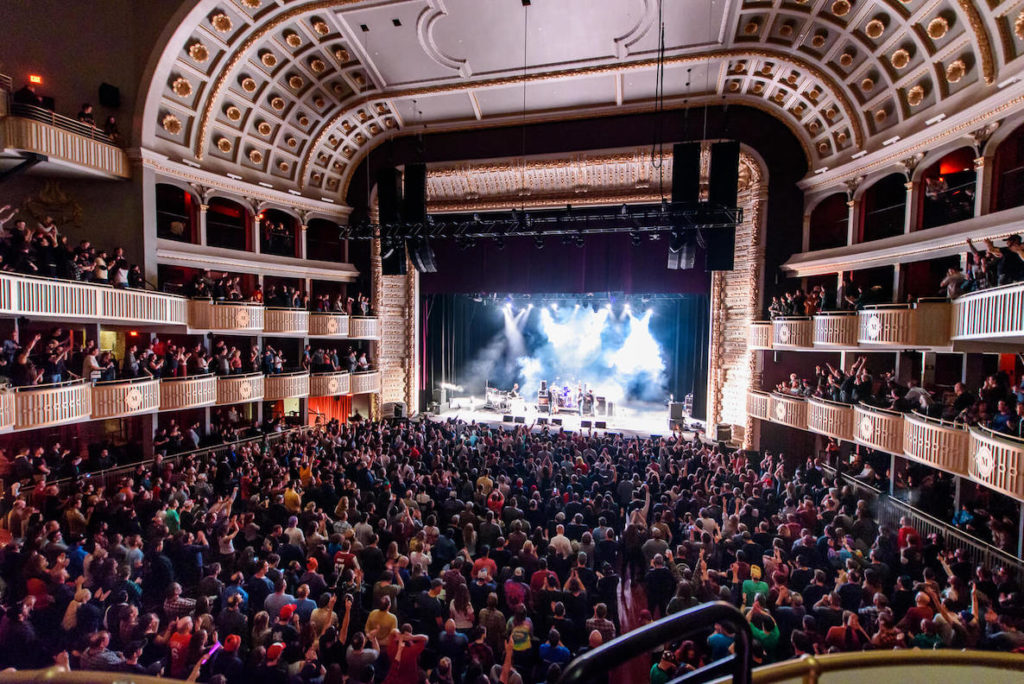
There are currently 1,325 businesses and more than 50 major development projects proposed, underway, or recently completed, from Aloft Hotel at 101 N. Broad to the Laborers’ Training and Learning Center at N. Broad and Thompson, to residential buildings with esoteric names like The Civic, Diamond Park, and Mural Lofts. NBR also partnered with AARP to create an action plan focused on creating more public and green spaces that are senior-friendly.
Originally launched with the name Avenue North Renaissance in 2015 by Dr. Kenneth Scott, the CEO and president of Beech Companies, with the support of Council President Darrell L. Clarke, NBR was renamed in 2017 when Thomas came on board. She took the reins after serving as executive director of the African-American Chamber of Commerce, and was previously the communications director for then-State Rep. (and currently federally-indicted Councilmember) Kenyatta Johnson.
In many ways her job at NBR is akin to being a quarterback. At all times, she has to have a keen awareness of the players in her purview: everyone from businesses and schools, to the residents on adjacent streets. The North Broad corridor has more than 50,000 residents, the majority of whom are Black. There are more than 29,000 jobs, 70 percent of which come from eds and meds. And for all of the change on North Broad, there also remain some Philly icons that have been there seemingly forever: PAFA, Congregation Rodeph Shalom, Temple University.
The goal Thomas is always working towards? Putting North Broad on the radar of people who’ve overlooked it for far too long. “Sometimes businesses or potential commercial tenants feel like they’re going to move into a neighborhood and have to figure things out on their own,” she says. “But with organizations like the North Broad Renaissance, you have a partner that’s here to help you, support you, give you information, help you find resources to support your business.”
With the arrival of Covid-19, last May NBR launched its “Reopened With Care” campaign, a marketing strategy that incorporated the City’s eight-point safety checklist for businesses and promoted the safety and security of the area; during last summer’s unrest, they helped businesses secure their storefronts.
“I grew up at 13th and Pike, and my mom and brother still live there, so it’s a real interest to me to make sure things are really done right,” says Thomas.
They also connected small business owners with at least 10 different loan and grant programs, from LISC Small Business Relief Grants to The Merchant Relief Fund, Women’s Way Immediate Response Action Fund, and more. They’ve provided residents with information about meal services, mental health support, unemployment compensation, and pandemic unemployment assistance.
And as if looking out for those constituents—during a pandemic, no less—isn’t enough, Thomas also has to answer to the ultimate constituent: her mom. “I grew up at 13th and Pike, and my mom and brother still live there, so it’s a real interest to me to make sure things are really done right,” she says, laughing about her mom’s unofficial status as the neighborhood yenta, the unofficial mayor who holds court on her stoop to regale neighbors with what’s going on under her daughter’s watch.
“There is very real progress taking place on North Broad Street, and that is a long time coming. But it’s happening now,” says Council President Clarke. “For many years, in the ‘90s, the focus was all on South Broad Street with the Avenue of the Arts. As important as that all was for Philadelphia, North Broad Street’s renaissance is every bit as important.”
A public stage
Thomas likes to think of North Broad as a stage—about 30,000 cars drive down North Broad every day, alongside 150,000 SEPTA riders and 40,000 residents. She’s constantly asking herself how to remove barriers to engagement. And she’s constantly out with volunteers, visiting local businesses to say hey, and flyering about meetings and development.
She’s committed to plugging people into meaningful opportunities at every turn. Take Trina Worrell-Benjamin, the owner of the cleaning company TWB Enterprises. Back in 2017, NBR put out a bid for companies to oversee the cleaning of the North Broad Corridor: It had been at least a decade since it was thoroughly tended to, with weeds growing three feet high and pervasive illegal dumping. Worrell-Benjamin had never done cleanups like that before—her work had focused on commercial and construction sites. But she studied what successful companies had done in other cities—L.A., Baltimore—then she did such a stellar job on her pitch that she landed the deal.
“It’ll be tough,” DEL says, “but by the time I’m gone, maybe today’s kids’ kids can finally say, It came back. I don’t want it for glory, I want it because I love this city and I love its people.”
Now, each time a new business comes to town and asks Thomas for a cleaning company, guess who Thomas recommends?
“I used to have six employees—now I have 37,” Worrell-Benjamin says. She, too, grew up on North Broad, and has been mesmerized by the transformation—of which she’s been a key part.
Along with cleaning up North Broad, Thomas is also overseeing the greening up of North Broad, as a way to invite in everyone—like the senior set addressed in the AARP report, yes, but people of all ages. At the intersection of Broad, Germantown, and Butler, there’s a small triangle of land that Thomas remembers walking past without a second thought when she was growing up. Currently, it’s being cultivated as a green space for neighborhood programming and outdoor enjoyment.
“Those are the things where I just look at it, and I get overwhelmed with pride,” she says. “But it’s also a huge responsibility: You can’t let the same thing happen to this area that you see happening to other gentrifying places—you have to have a voice.”
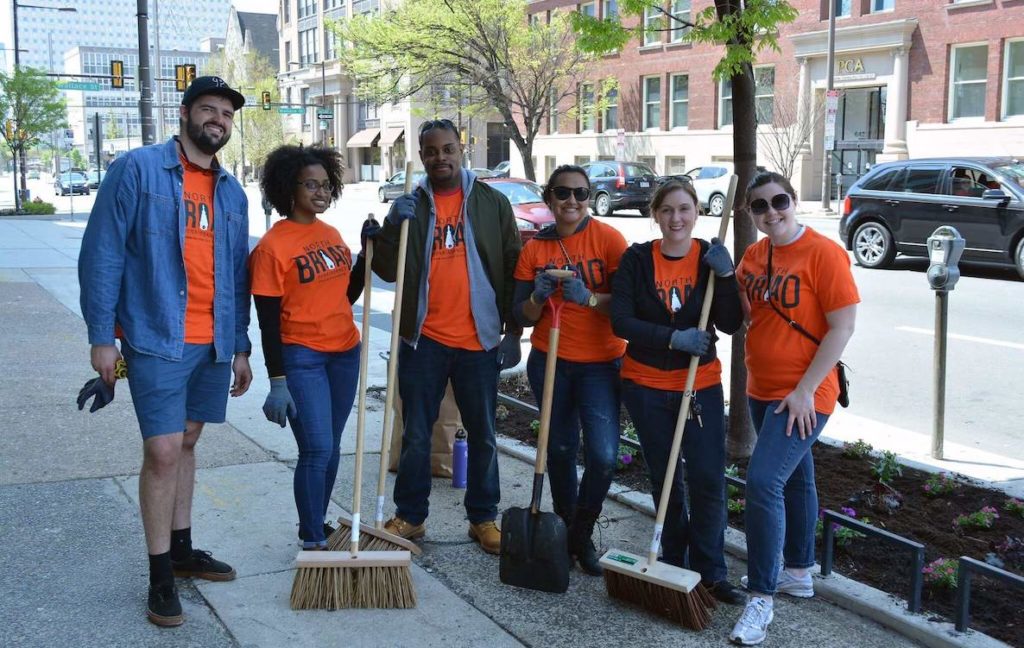
Brigitte Daniel-Corbin is the executive vice president of Wilco, which has been providing telecom and technology services to underserved and minority communities in Philadelphia for over 40 years, with many customers in North Philadelphia; she was also part of the team that put together the proposal to get Amazon’s second headquarters in Philly. She says she’s always been attuned to what’s going on in terms of the rejuvenation of businesses in the corridor.
Still, she says, “I was always concerned that there weren’t a lot of innovation hubs coming out of North Broad. So I connected with Shalimar and the NBR team years ago and said to Shalimar, you all have such a rich and ripe area for innovation hubs to reside. One, you’re right off of North Broad; two, you have the fiber hub of the region right off of 700 North Broad; and three, so much of the community’s diversity resides in North Philadelphia.” Daniel-Corbin has been assisting Thomas, if only informally, with introductions and collaborations, happily acting as a sounding board when Thomas has questions.
And she’s not just invested as a business leader: She lives on North Broad, owns property there. “I definitely have a personal interest in making sure that the corridor is growing and that there’s also inclusivity in the vendors and the businesses,” she says.
More to come
None of this is to say that North Broad has become Shangri-La. While there are not readily available data sets for North Broad Street alone, there’s that crime in adjacent neighborhoods. (The city releases data by neighborhoods, which will include the areas east and west of Broad.)
And then there’s the issue of employment, which had been trending upward, until Hahnemann closed in 2019, taking over 2,000 jobs with it, and the pandemic hit in 2020.
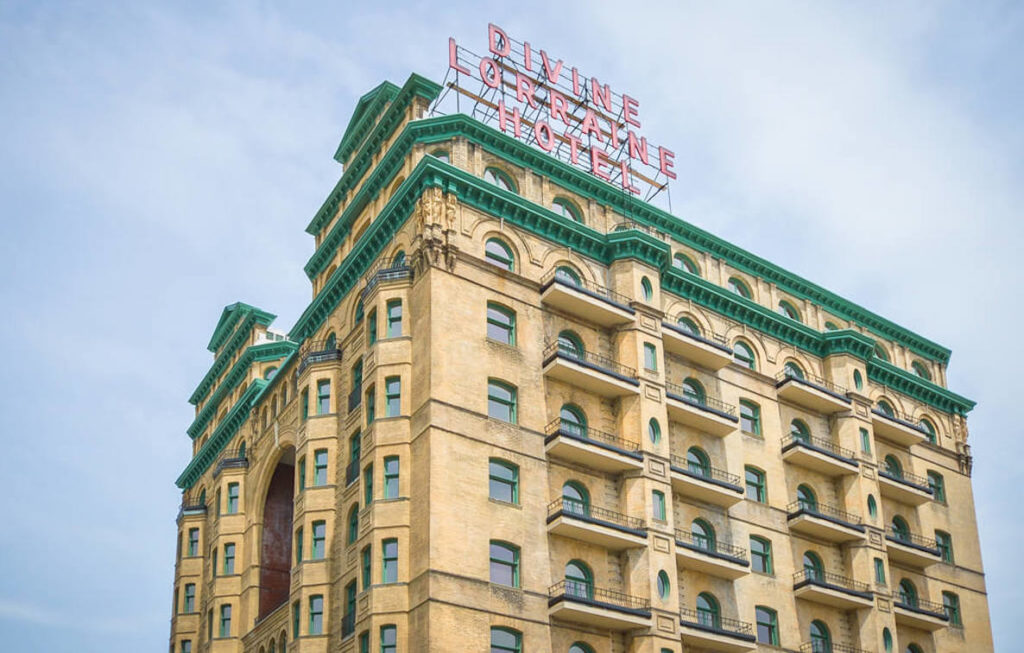
Temple, Nepa says, can do more, as Penn and Drexel have done in West Philadelphia, to create both jobs and appeal. “That’s the thing about Temple: They’ve got the money, they’ve got the clout. [But] developers run this town, and they see these old houses and think about student housing and dormitories. And that’s been a real conflict point,” he says.
There can be a disconnect, at times, between Temple’s needs and those of the community; tensions between Temple and its surrounding neighborhood have flared, for example, around the building of the school’s football stadium, and pretty much any time a developer sees profit in, say, catering to transient students versus long-time residents. (Some speculate that with Temple University president President Richard M. Englert about to retire, that could pave the way for more aligned interests.)
But Nepa, among others, believes that Temple is starting to shift its M.O. “When I started at Temple as a grad student years ago, there was no grocery store north of Spring Garden! Then they built one right near Temple’s campus, and now so much investment has poured into that area,” he says. Not everybody’s been happy about it, he says, “but the end result is, hey, look, there are more businesses, they’re paying taxes, they’re generating revenue. They’re hiring people from within the community. This is kind of the upside of this revitalization. I always try to tell my students that gentrification is not all bad.”
DEL points to the need to address the mental health needs of our whole city; he believes doing so is what will address some of our most pervasive and stagnant issues: homelessness; police incompetence; poverty—along North Broad, and everywhere else.
He points to the need for bike lanes and good schools and nonthreatening community patrol volunteers. (And, yes, while they’ve grown on him, he questions the decision to prioritize those LED light sculptures.) The conversations around infrastructure, the funds coming from the American Rescue Plan—both of those could move the needle on some of these issues in a really meaningful, timely way.
Daniel-Corbin believes the foundations for progress are all in place.
“There’s the planting of seeds,” she says. “It’s kind of akin to southwest Philly—there’s still so much that you can do, it just needs to be cultivated and curated and really groomed. If you are a developer or a startup looking for space that’s connected to the communities where you are providing services, then it’s all about North Broad.”
To keep North Broad’s momentum going, Thomas is focused on attracting even more businesses and jobs to the area, and generating funding for her small-but-mighty nonprofit: Her annual budget is $850,000, with about $591,000 coming from its SSD status. The rest comes from the kind of fundraising any nonprofit can relate to: Amazon Smile purchases, donations, fundraisers.
She’d love to see more Black- and Brown-owned businesses plant roots, and she’d love to see more businesses lean in now.
“Get here early to benefit from the development that’s going to happen. Come in now, while it’s still up and coming,” she says. “We can help you be successful and we can help you grow.”
DEL thinks real change will happen, even if it’s slow, even if it’s block-by-block. Nepa sees it happening already in what he calls “nodes.”
“It’ll be tough,” DEL says, “but by the time I’m gone, maybe today’s kids’ kids can finally say, It came back. I don’t want it for glory, I want it because I love this city and I love its people.”
Header photo J. Fusco / Visit Philadelphia


